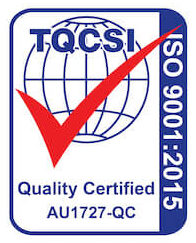Course Introduction
Course Features
✅ Take Online or Offline (See Brochure)
This Ship Security Officer (SSO) Course has been tailored specifically for potential SSO’s who work on board luxury Superyachts, Mega Yachts and Motor Yachts. We also provide the following tailored versions of the Ship Security Officer Course for the following sectors, so if you are on one of these types of vessels, it is better you select it from the links provided below:
- Commercial Cargo, Mobile Offshore Platforms and Ferry Potential SSO
- Cruise Ship & Passenger Ship Potential SSO
About This Course
The fully online, UK DfT Maritime & Coastguard Agency (STCW ISPS) Proficiency as Ship Security Officer (SSO) Course, is a mandatory training requirement under STCW ISPS for members of a Superyacht’s Crew intending to fulfil the role of a Ship Security Officer. The SSO is responsible for the security measures implemented on board, in accordance with the Ship Security Plan (SSP), and the ISPS Code. Amongst the many other responsibilities, SSO’s are responsible for the implementation of the security measures laid out within the Ship Security Plan at all times the yacht is underway, or in Port. As well as the ongoing maintenance of the Ship Security Plan, the SSO must ensure that all yacht’s crew members and staff, especially those being tasked with Designated Security Duties, fulfil their obligations towards the security integrity of the yacht. The course will provide the Learner with the information required to complete the required instruction under STCW, the MNTB KUPs, IMO Model Course 3.19, and the Maritime & Coastguard Agency (MCA). For information on the course Awarding Body and Certification, please view the Certifications Tab.
Course Learning Outcomes
- Understand the importance of ship security and the roles and responsibilities of organisations and individuals involved in it
- Know how to assess security risk, threat and vulnerability to the ship, its personnel, cargo, and operations
- Understand the capabilities and limitations of security methods, equipment, and systems
- Know how to implement a ship security plan and related regulatory requirements
- Know how to determine the effectiveness of current security arrangements, procedures, and equipment
- Understand how to promote security awareness and vigilance on board ship
Regulations Addressed
- MNTB Security Courses Criteria (2nd Edition)
- Regulation VI/5 of the STCW Convention and Code (2010)
- IMO Model Course 3.19 (2012 Edition)
- Chapter XI-2 of the annex to the International Convention for the Safety of Life at Sea (SOLAS) Convention (as amended)
- The International Ship & Port Security (ISPS) Code as amended (STCW Table A-VI/5)
Pre-Requisites
Under the mandatory requirement of the UK Department for Transport, Maritime & Coastguard Agency (MCA), learners wishing to undertake the course must be able to demonstrate 12 months sea service, or as at the discretion of the MCA, appropriate sea service (minimum of 3 months) and knowledge of ships operations to enable them to achieve the objectives of the training provided. By taking this course, you are stating that you do possess the relevant requirements and meet with the relevant pre-requisites.
Course Brochure
For the full Proficiency as Ship Security Officer course description and details, download the course brochure here or from the button at the top of the page.
- The Development of the International Ship and Port Facility Security Code.
- Understand the roles and responsibilities of relevant bodies and organisations.
- The roles and responsibilities of Contracting Governments, Designated Authorities, and Recognised Security Organisations.
- The Security Roles & Responsibilities of Crew and Port Security Personnel.
- Measures and Procedures for Maritime Security [MARSEC] Levels.
- Recognition of weapons, dangerous substances, and devices.
- Recognition of persons who may pose a threat to the security of the ship.
- Identifying techniques used to circumvent security measures.
- The handling of Sensitive Security-Related Information [SSRI] and Communications.
- Identifying security threats including Maritime Piracy & Armed Robbery against Shipping.
- Declarations of Security [DoS].
- The On-Scene Security Survey.
- The Ship Security Assessment [SSA].
- The Ship Security Plan [SSP].
- The provisions for maintaining security.
- Criteria for setting Maritime Security [MARSEC] levels under the ISPS Code.
- Actions to prevent weapons, dangerous substances and devices being brought on board.
- Guidance and measure for Anti-Piracy and Anti-Armed Robbery.
- Responses to Emergency Situations including Maritime Piracy & Armed Robbery against Shipping.
- Physical Searches & Non-Intrusive Inspections.
- Crowd Management & Control Requirements.
- Crew Training, Emergency Drills & Exercises.
- European Commission [DG MOVE] and European Maritime Safety Agency.
- Port and Flag States.
- UK DfT Maritime Security and the Maritime and Coastguard Agency (MCA).
- Recognised Security Organisations and limitations in their use.
- The Shipping Company.
- Masters Authority and Discretion for Ship Safety and Security.
- Authority of the Duly Authorised Officer [DAO].
- The legal implications for seafarers and security personnel.
- The requirement for the provision of the ship identification number [SIN], Automatic Identification System [AIS], Ship Security Alert System [SSAS] and Long-Range Identification and Tracking [LRIT].
- The purpose and control of the continuous synopsis record [CSR].
- The purpose and use of the Long-Range Identification and Tracking [LRIT].
Please note you will be redirected to one of our partner’s websites Virsec to complete the course to complete & pay for the course.


)
)